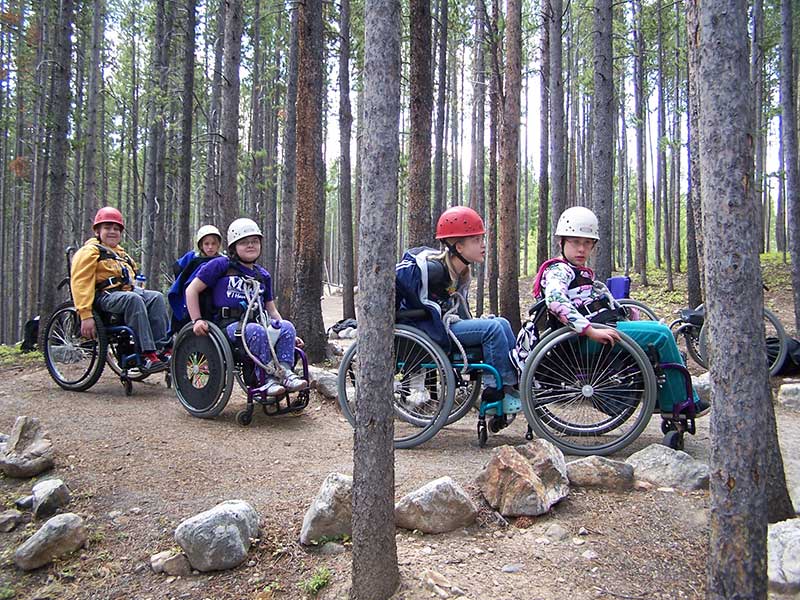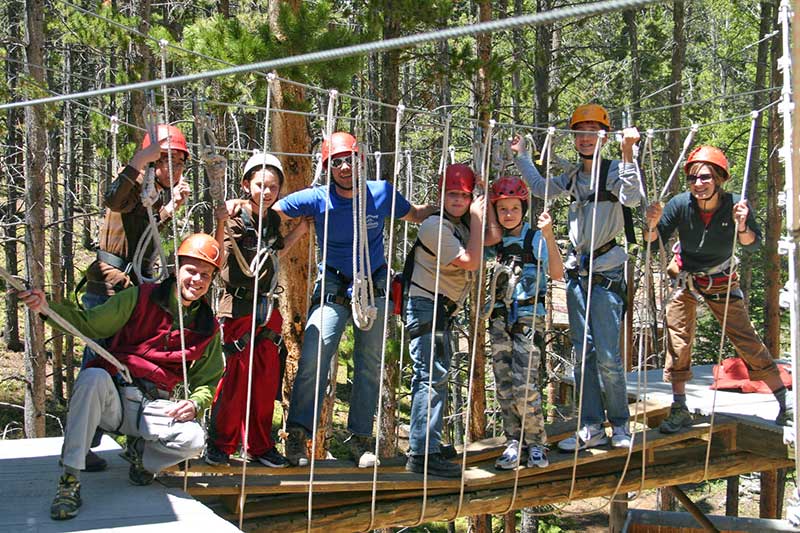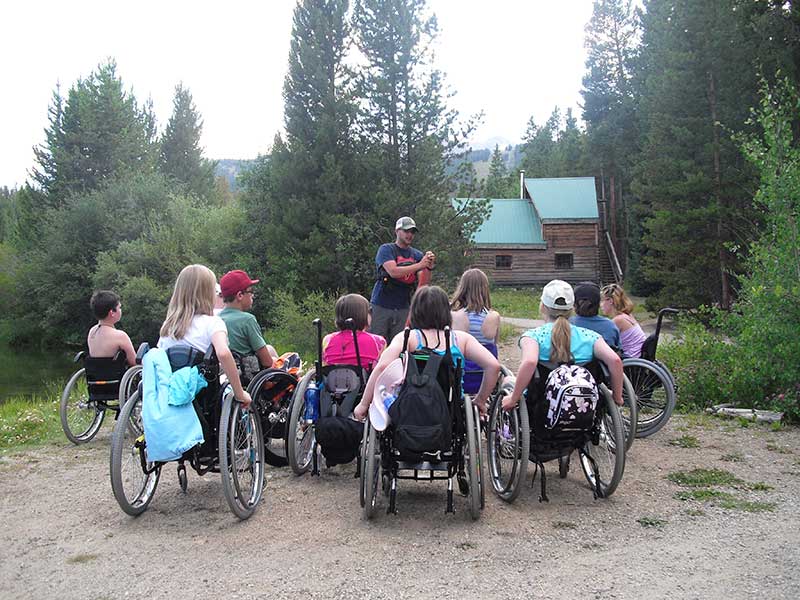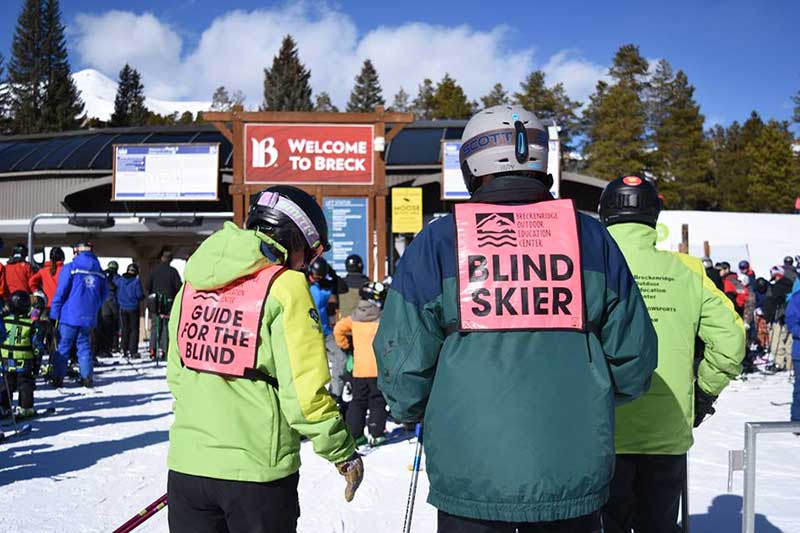Enrollment Guidelines
Wilderness Program Guidelines
 BOEC is committed to providing quality outdoor education to people of all abilities. Within this framework, there are physical and legal guidelines the BOEC must follow to ensure the best experience for its participants while remaining within the “standards of the industry.” The following guidelines are presented as an aid in determining the appropriateness of a prospective BOEC participant. These general enrollment guidelines include the following items but are not limited to only these items.
BOEC is committed to providing quality outdoor education to people of all abilities. Within this framework, there are physical and legal guidelines the BOEC must follow to ensure the best experience for its participants while remaining within the “standards of the industry.” The following guidelines are presented as an aid in determining the appropriateness of a prospective BOEC participant. These general enrollment guidelines include the following items but are not limited to only these items.
The BOEC strives to offer fun, adrenaline-pumping adventures often in remote and exotic wilderness areas. Such settings and activities, while exciting, include inherent and unpredictable challenges for all those who participate. While the BOEC is committed to a Challenge by Choice philosophy, ensuring that participation is a personal decision for each individual, given the nature of our programs, certain physical and mental challenges are unavoidable. Additionally, it is one of our highest priorities to ensure the safety of all participants, volunteers, and staff. As such, the BOEC reserves the right to screen all participants to ensure each person, and therefore the group as a whole, can face such challenges in a safe and responsible manner.
Medication:
BOEC does not administer medication to its participants. We will assist with storage, prompting, and counting of routine oral medication only. Routine oral medication is defined as any oral medication that the participant has been taking long enough for dosage stabilization and side effect identification. BOEC will not alter any oral medication (E.G.: cut, break or crush pills). Participants requiring help with their medications must provide a care provider who will be responsible for the participant’s medication.
 Personal Care:
Personal Care:
Participants on BOEC courses must be able to perform the following tasks or be accompanied by a personal care provider (supplied by the participant): Dress and eat without assistance, perform all aspects of personal hygiene (toileting, medications, washing, teeth, etc.). Note: A “personal care provider” is defined as a person who accompanies a participant on the program and assists the participant with all necessary daily living skills. Personal care providers are supplied by the participant at a reduced tuition rate.
Mobility:
BOEC Wilderness Programs are designed for people of all abilities. Programs have varying levels of challenge and commitment; therefore, program planning will take into consideration aspects such as mobility and fatigue challenges on an individual level. Participants interested in water-based programs must be able to wear a personal flotation device (PFD). Some participants may be unable to fit into a BOEC-supplied PFD. Federal and state laws require that PFDs be worn on BOEC’s water trips.
 All participants on a BOEC program must be able to perform the following tasks or be accompanied by a personal care provider to be supplied by the participant: Sit up from a supine position on the ground, move from a sitting position on the ground to a chair if one is needed and transfer unassisted.
All participants on a BOEC program must be able to perform the following tasks or be accompanied by a personal care provider to be supplied by the participant: Sit up from a supine position on the ground, move from a sitting position on the ground to a chair if one is needed and transfer unassisted.
Behavior:
Appropriate behaviors while attending a BOEC program are critical to the success of the program for all participants. BOEC requires that all participants be voluntarily involved in all aspects of their chosen program. All participants must be willing and able to follow directions. Those requiring constant supervision must be accompanied by a personal care provider who attends at the cost of the participant. Participants who exhibit self-destructive, disruptive, or abusive behaviors will not be allowed to participate in BOEC programs. BOEC reserves the right to screen all applicants to ensure our programs are appropriate for them.
For further questions, please contact Claire DiCola: [email protected] or 970-453-6422.
Adaptive Ski & Snowboard Program Guidelines
 All information shared with us during your pre-lesson call with BOEC Ski Program staff is critical to ensuring that we have selected the best option for each participant, that we are able to provide proper fitting equipment, and that each participant will have a successful experience. The information below provides each participant with additional information related to equipment, limitations, and modifications.
All information shared with us during your pre-lesson call with BOEC Ski Program staff is critical to ensuring that we have selected the best option for each participant, that we are able to provide proper fitting equipment, and that each participant will have a successful experience. The information below provides each participant with additional information related to equipment, limitations, and modifications.
Stand Skiers, Snowboarders, Ski legs, and Sliders
- The largest boot size available for skiing and snowboarding size 15. Please note that the larger boots sizes may not be available if not discussed during your intake call.
- Stand-up skiers, snowboarders, ski legs, and slider users must be able to do the following:
- Walk the distance of the lift line independently or with very minimal assistance from staff.
- Must be able to stand after falling down either independently or with minimal assistance from staff.
Sit Down Skiers (Bi-Skis and Mono Skis)
- Weight limit for sit down skiers is 220lbs. This is a non-negotiable policy.
- Sit down skiers who are 6’3” or taller must discuss required equipment during a pre-lesson intake call with BOEC staff as BOEC has a limited number of skis designed to fit a taller person.
For further questions, or to discuss gear needed for your lesson, please contact Sean Houston, Assistant Ski Program Director: [email protected] or 970-453-5633.

